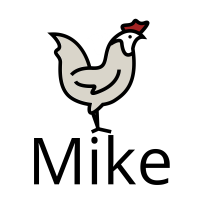I’ve never heard of these candidates, they have no party affiliation, and there’s almost no information about them online that I can find.
Are those positions just for people who work closely with those departments to vote on?
I cannot recommend this organization highly enough. They provide nonpartisan information on candidates in every state for every election.
This is a good one. I’ve also used ballotpedia. Typically I use multiple sources just by google/bing/ddg/etc searching to confirm information on the candidate. Worked extremely well last mayoral election where we kicked an incumbent out who didn’t do a terrible job but we needed a change.
Just checked this site out and it looks pretty superb on the surface. Each candidate has links to the sites and social media, their experiences and stances are aggregated there and there’s an option to contribute more information.
The true test will be to see how it handles extremely local candidates like the school board, which I struggled to find information on in the last election.
I’m not sure about school board because I don’t think we vote for those where I am. I know they reach out to candidates that don’t have easily found information and if the candidate doesn’t respond the organization says so. It’s really helpful for judges in particular because it lists all the ratings from various legal organizations.
This last election, I googled the candidates and voted for the ones that hadn’t tried to ban books at the local library.
The League of Women Voters in your area will usually have in-depth info on candidates and issue on your ballot.
You can also research their endorsements. Does a candidate have endorsements from local unions, newspaper, other public servants? Do you trust the endorser?
As you continue to vote and follow these local elections, you will get better at learning about them. The best thing to do is to be involved yourself. If you become active with civic organizations, you’ll be more connected to what is happening with local leadership (churches, cleanup groups, food bank, trade groups, etc.). Basically see if you can volunteer wherever you usually donate locally.
I just call them up for a chat. At the local level they’re usually super excited that anybody cares.
In my neck of the literal woods this has become an incredibly simplistic exercise. It used to be that I’d take the time to research their positions on specific issues… sometime even calling them up and asking questions. What party they belonged to was not always a reliable indicator of this so it was worth taking the time. But these days, where I live, we’re lucky to get even one candidate who is not a mouth breathing MAGA cult member.
So I just look up their voter registration and political contributions.
Same issues in my neck of the woods. Since they all feel the same why I tend to pick the ones that at least talk to (some) residents.
You should probably specify which country you’re from
The US, but why? How does the answer differ in different countries?
Prime US mentality
It varies everywhere, even from state to state in the US.
The US system is kind of broken - they ask you to vote for way too many things. Where I’m from I just vote for a party - I basically say “yeah, the green party are cool”, and then the party decides who to put in which position should they get enough votes. I can give a +1 to candidates I like personally, but I don’t have to.
In the US you might be asked to vote for school boards, a sheriff, and a bunch of weird positions. There’s no realistic chance you’ll make an informed decision for all of them.
Sadly, it’s very important you still vote, because the republicans are using this broken system to fill these positions with far-right lunatics. So basically seek out information as much as you can, but at the end of the day just vote for whichever Democrat is on the ballot whenever in doubt. They’re not guaranteed to be good - in fact they’re likely to be pretty bad - but they’re pretty much guaranteed to be the lesser of two evils.
Still might vary though - local politics are weird, and there are no rules set in stones. Some places you still have decent republicans on the local level (or so I’ve heard).
First i go to vote411 (.org i think). It’s a website from the league of women voters that asks each candidate the same questions. Sometimes candidates don’t answer or are so vague that their answers are useless. Then i look to see who the local newspaper is endorsing. When both of those are unsuccessful, i find the hateful group (in Texas it’s the true Texas project), see who they endorse, and vote opposite.
I used this same tactic on other websites (mentioned in other comments) and it works extremely well. The incumbent failed to answer certain questions while a new candidate was eager to and had some really great game plans to tackle issues our city was facing. They ended up winning which was awesome and started putting policies in place that are doing good for people in the city.






